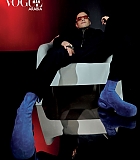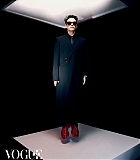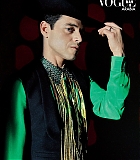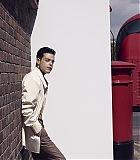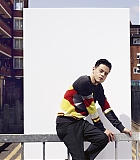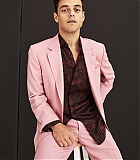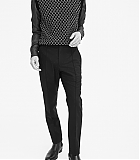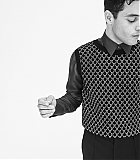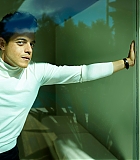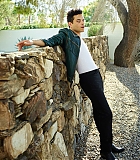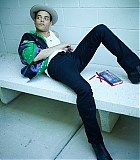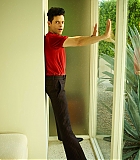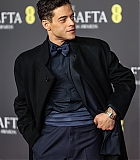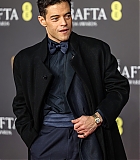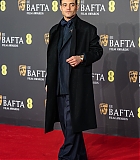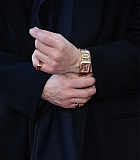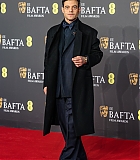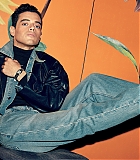
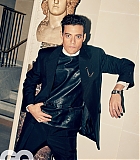
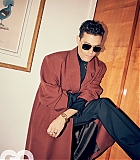

Rami Malek has a super power. I had the demonstration last October, during the last remnants of Paris Fashion Week. We are at the Hotel Le Bristol and in the middle of our conversation, he suddenly turns towards a young woman who is whispering on the phone in the back of the room: she is an assistant of Cartier, a brand of which Malek is a zealous ambassador and reason for the its presence in France.
“Look, I hear everything,” he warns him politely. The assistant turns all red.
“My hearing is insanely perfect,” he smiles, proud of his Superman prowess. «To the point that if the director chews a chewing gum on the set, I look into the camera and say: “Spit it out please”».
So take note. Rami Malek not only has unforgettable eyes that seem to see everything in CinemaScope, but also a very fine ear. After all, precision is an idea that often comes up in our conversation… But first of all, let’s talk about his gaze: impossible to miss, it is the trait-d’union between the disparate and notable roles of the actor, from the tormented sociopathic hacker in the Mr. Robot series, to Freddie Mercury in pursuit of musical perfection in Bohemian Rhapsody, up to the evil James Bond antagonist in No Time to Die. “Does that guy ever blink?” Tom Hanks asked, like all of us, on GQ in 2019, commenting on Malek’s casting for the series The Pacific of which he was co-producer. “Unique” eyes, “wide open and sleepy at the same time”, which made him recruit in the role of the sarcastic corporal Shelton, always ready for a biting joke.
Yet, the Rami Malek who stands before me has nothing of the superhero. Of course, the look is penetrating, but the thought of him slips to his line in a Saturday Night Live sketch in which he had to talk about himself: «It’s as if the soul of a Victorian-era child were trapped in the eyes of a he”».
A joke, but not too much, given that at 41 the actor has an unusually young, almost ageless air. Certainly, a detail that has not damaged his career. Dressed in an understated military-collared shirt, waistcoat, and matching black slacks, Malek, a native of Torrance, California, has the air of a poet, a bohemian Parisian Left Bank artist. And, perhaps not surprisingly, our exchange begins with a decidedly French topic: Jean-Luc Godard, Agnès Varda and the Nouvelle Vague «have redefined cinema and I love when everything is redefined», he says that a quarter of an hour first she posed on the hotel stairs, totally at ease, hyper-professional, very fashion week under the lens of the GQ photographer. [More at Source]
